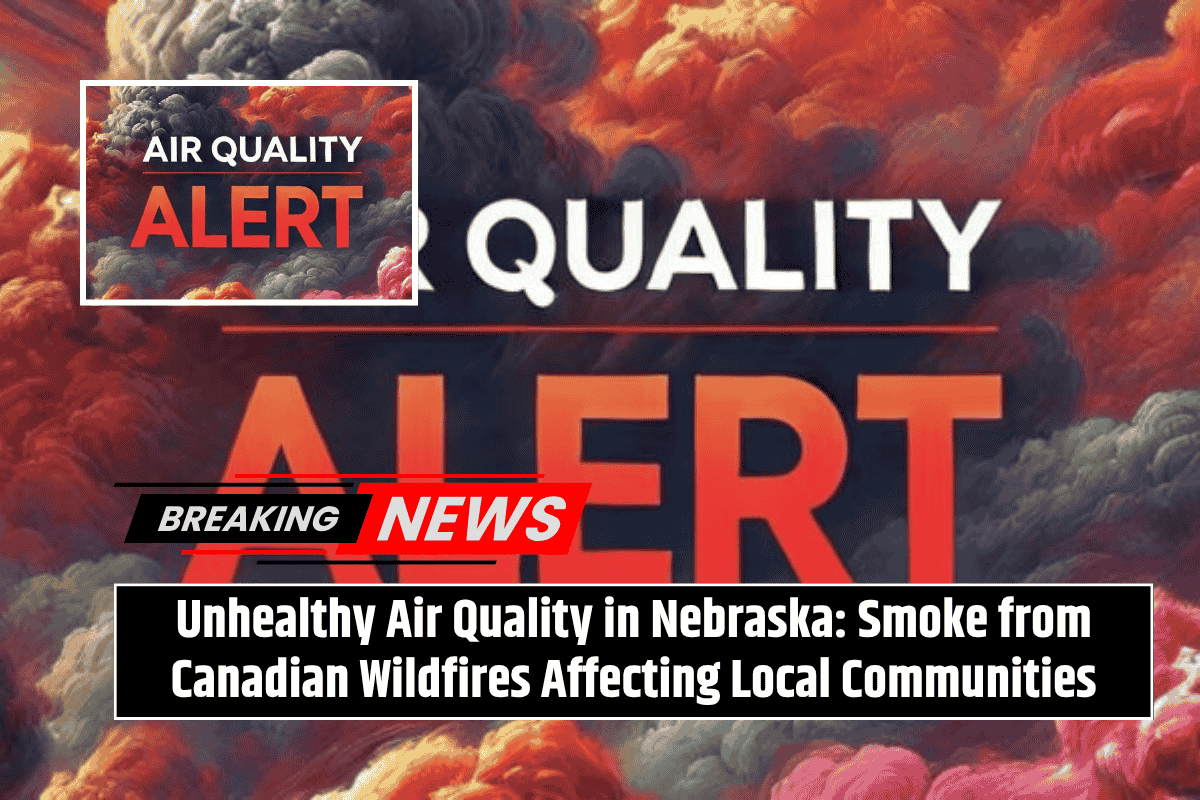Residents in eastern and central Nebraska, including cities like Omaha, Lincoln, and Norfolk, are being warned about unhealthy air conditions starting early Thursday. This is due to smoke drifting south from Canadian wildfires, which is expected to significantly impact the air quality in these areas.
Air Quality Alert Details
The Nebraska Department of Environment and Energy has issued an Air Quality Alert from 6 a.m. Thursday until 12 p.m. Friday. The Air Quality Index (AQI) is expected to reach the “orange” category, which means the air will be unhealthy for sensitive groups. This includes individuals with heart or lung conditions, children, the elderly, and pregnant people, who are advised to limit prolonged outdoor activities.
Affected Areas and Health Recommendations
Communities in Douglas, Lancaster, Dodge, Platte, Sarpy, and Washington counties are particularly affected by the smoke. Residents in these areas are urged to take precautions. Those who are vulnerable, such as individuals with respiratory conditions, should avoid outdoor activities when air quality is at its worst. For those who must be outside, minimizing exertion is crucial to reducing the risk of adverse health effects.
Outdoor workers and schools may need to adjust schedules or limit physical activities to prevent overexposure to smoke and poor air quality. Health officials recommend staying indoors, using air purifiers if available, and avoiding vigorous outdoor exercises during peak smoke hours.
Monitoring and Future Updates
Smoke concentrations will vary depending on weather conditions, such as wind speed and fire activity. Air monitors in Omaha, Lincoln, and Beatrice will continue to track real-time air quality levels, providing updates to the public. If smoke persists or worsens, additional advisories may be issued, extending the alert into the weekend.
What Residents Can Do to Stay Safe
To stay safe during the smoke event, it is recommended to:
- Stay indoors as much as possible during the peak smoke hours.
- Use air purifiers, if available, to reduce indoor particulate matter.
- Limit strenuous outdoor activities to avoid inhaling harmful particles.
- Keep an eye on air quality updates from local authorities.
